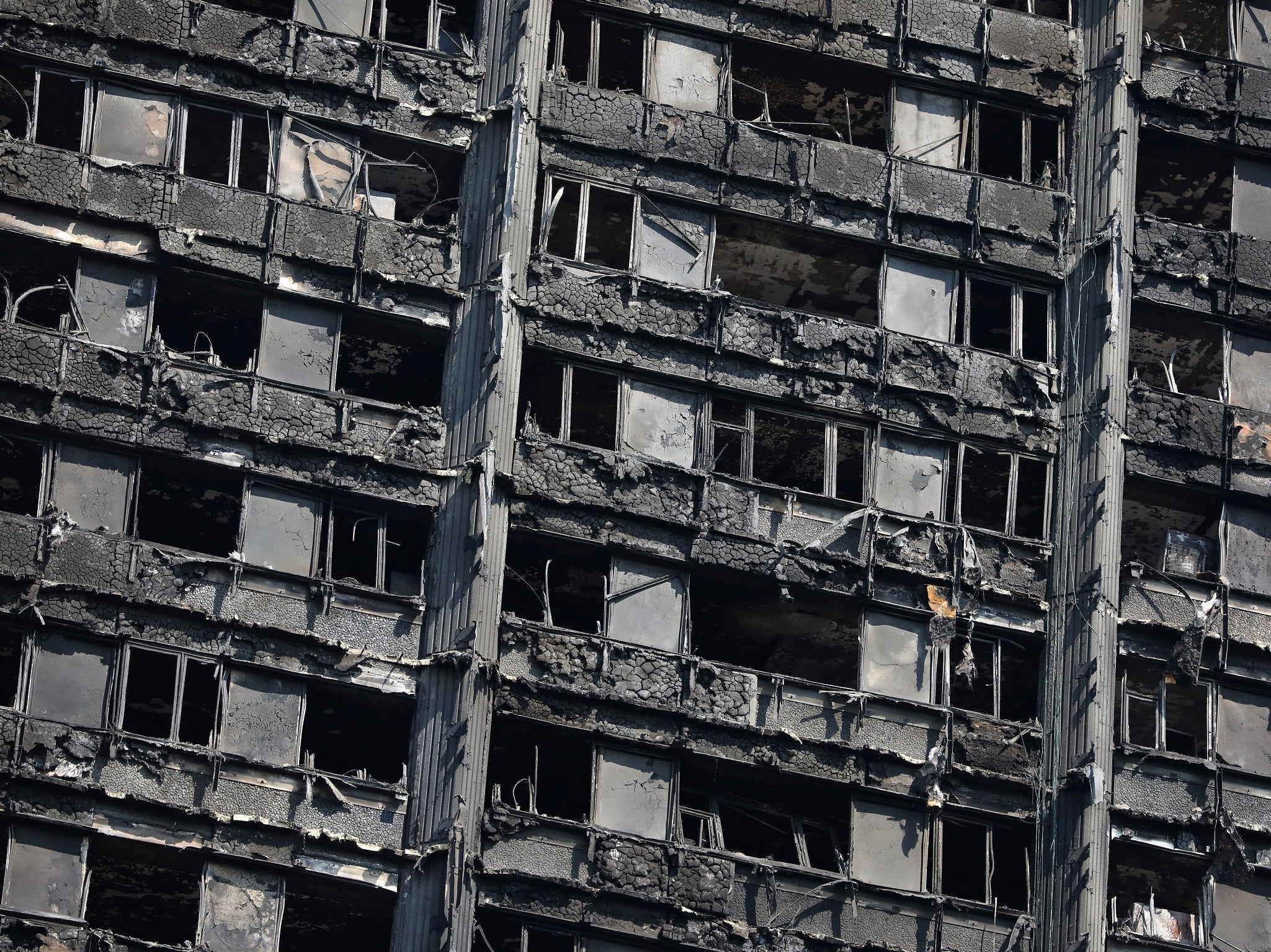Grenfell Tower fire: Cladding supplier distances itself from disaster as profits rise
Arconic made profits of $212m in the second quarter of the year as it moves to absolve itself of responsibility for fire

Your support helps us to tell the story
From reproductive rights to climate change to Big Tech, The Independent is on the ground when the story is developing. Whether it's investigating the financials of Elon Musk's pro-Trump PAC or producing our latest documentary, 'The A Word', which shines a light on the American women fighting for reproductive rights, we know how important it is to parse out the facts from the messaging.
At such a critical moment in US history, we need reporters on the ground. Your donation allows us to keep sending journalists to speak to both sides of the story.
The Independent is trusted by Americans across the entire political spectrum. And unlike many other quality news outlets, we choose not to lock Americans out of our reporting and analysis with paywalls. We believe quality journalism should be available to everyone, paid for by those who can afford it.
Your support makes all the difference.The firm that supplied the cladding used on Grenfell Tower has reported higher than expected profits as it moves to absolve itself of blame for the devastating fire.
Arconic made profits of $212m (£162m) in the three months to the end of June - the period including the 14 June inferno that killed at least 80 people - an increase of 57 per cent from the same quarter of the previous year.
It has announced it will no longer sell its Reynobond PE panels for high-rise blocks because it has no control over their installation.
It also raised its forecast for annual revenue to $12.7bn (£9.7) from $12.3bn (£9.4), thanks to better than expected sales.
“The business increased revenue and profitability, continued to expand margins and take out cost,” said David Hess, Arconic’s interim chief executive. “We ended the first half of 2017 with significantly less debt, a strong cash position and good liquidity.”
The company now faces several class-action lawsuits that accuse it of making false and misleading statements related to its sales of the panels from plaintiffs who are complaining about the 7 per cent fall in the value of its shares in the wake of the catastrophe.
Since the fire – the deadliest in the UK for more than a century – at least 149 high-rise buildings in 45 different local authorities in the UK have failed cladding safety tests.
The Reynobond PE panels used in the cladding of Grenfell were the cheapest of three options including panels with a fire resistant core, suitable for buildings up to 30 metres, and panels with a non-combustible core, for buildings above that height, outlined in Arconic’s own leaflet.
Its website continues to promote the cladding as part of "beautiful, secure and sustainable buildings" used by millions of people around the world.
Arconic, known as Alcoa Inc until 2016, told the Independent it was unaware the panels would be used for the high-rise, owned by Kensington and Chelsea Council, and was not responsible for deciding what was compliant or not compliant with local building regulations.
It is continuing to work with investigators to determine what caused the flames to engulf the tower block with such speed and ferocity, Mr Hess told investors as he announced the profits.
“Cladding systems contain various components selected and put together by architects, contractors, fabricators and building owners, and those parties are responsible for ensuring that the cladding systems are compliant under the appropriate codes and regulations,” the company said in a statement.
That decision to stop selling the panels was made out of “an abundance of caution as Arconic does not control the ultimate design and installation of the final cladding system,” the company said.
“We extend our deepest sympathies to those who have lost so much,” Mr Hess added.
An Associated Press review this month found that some building owners in the US were unaware that the same Reynobond PE panels, which feature a polyethylene core, were also used on their buildings.
Polyethylene is combustible, according to federal agencies including the Centres for Disease Control and Prevention.
In many cases, building owners and regulators did not know the product was used on their structures, or exactly how it was applied, while some old building records had been destroyed.
No one has declared any of the US buildings unsafe, nor has the US government ordered widespread testing of building panels that British authorities ordered in the aftermath of the catastrophe.
But at least three federal lawsuits seeking class action status this month accuse Arconic of knowingly failing to disclose the dangers of Reynobond PE.
“Despite the known flammability of the Reynobond PE panels, resulting in prohibitions against installing them in high-rises in the US and Europe, Arconic sold millions of dollars of the flammable panels for use in projects Arconic knew were inappropriate and presented a fire hazard,” lawyers for Janet L. Sullivan wrote in the lawsuit filed in New York's southern district.
Shareholders complain they lost money when Arconic's stock price dropped following the inferno.
The company has offices in Pittsburgh and New York and has sold Reynobond since it was first produced in 1989 at a company plant in Eastman, Georgia.
Additional reporting by AP
Join our commenting forum
Join thought-provoking conversations, follow other Independent readers and see their replies
Comments